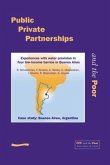"In 2015, Juan M. del Nido went on hundreds of taxi rides in Buenos Aires, conducting ethnographic work on the taxi industry. But by mid-April 2016, Uber launched its platform in Buenos Aires, engulfing drivers, passengers, the press, and greater general public into a frenzied hysteria that involved courts of law, political platforms, and threats of violence. This book examines not only how the taxi industry made sense of the sudden and ubiquitous presence of Uber in Argentina, but also how the assumed efficiency and objectivity of Uber's algorithmic methods catalyzed new forms of understanding ethics, responsibility and professional advancement in the Argentinean context. Tightly entwined with the politics of labor, trade, institutions, and economic life, del Nido reveals how Uber came to signify and instantiate the greatest moment of political and economic disruption seen in Argentina since the crisis of 2001. He shows how a multinational company taken to court allowed Buenos Aires's residents to craft particular ideas of what it meant to be political, and what it meant become "post-political"-to subsume, neutralize and pathologize genuine disagreement, shaping how we understand what we can even disagree about and how"--








